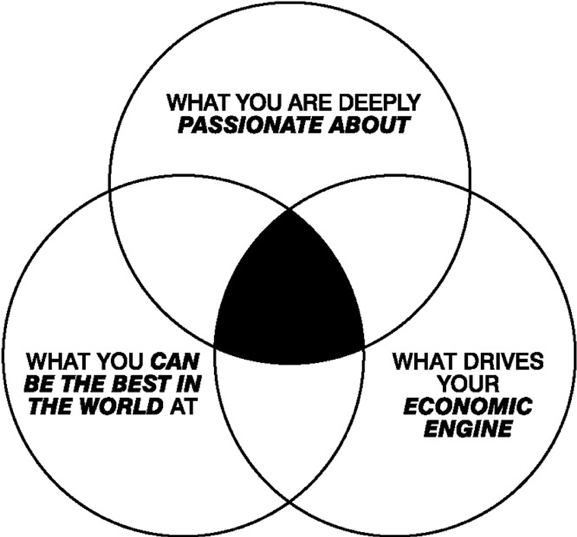Somehow I Manage: What Evaluation Consultants Need To Know About Business Management
February 2020
This article is rated as:
Evaluation Consulting Round-Up
Part 2
“New Directions for Evaluation” is one of the American Evaluation Association’s (AEA) academic journals, and they publish articles on cutting-edge issues in the evaluation world. Recently, they released a special issue focused on being an independent evaluation consultant. This is a round-up of what we learned.
Check out the other articles in this series:
Part 1 - non-evaluation skills you need to be a good evaluation consultant.
Part 2 - managing your consulting business.
Part 3 - maximizing productivity with business processes.
Part 4 - branding and marketing.
Part 2 in this series is about what evaluation consultants can learn from business management experts. This information comes from Matthew Feldmann’s article “Standing on the Shoulders of Giants: Applying Business Management Approaches to Independent Evaluation Consulting.”
A lot of people have done a lot of thinking and researching around how to run a successful business, so thankfully you don’t need to reinvent the wheel. There’s a lot independent evaluation consultants can learn from that body of knowledge. Three big takeaways from this article were: go from good to great, cross the chasm, and never eat alone. Let’s explore each of these.
Go From Good to Great
There are some recommendations that can help you take your consulting business to the next level. Experts have found these 6 practices are the difference between good businesses and great businesses:
1. Level 5 Leadership
You need a leader who is humble, extremely motivated, and dedicated to the organization.
2. First who, then what
Focus on finding staff who are a good fit for the organization – “get the right people on the bus and in the right seats.”
3. Confront the brutal facts
Try to take a clear, unbiased view of the workplace (even though its hard). Focus on doing what you do well and stopping what isn’t productive.
4. The hedgehog concept
This comes from the Greek fable “The Hedgehog and the Fox.” The moral of this story is that a fox knows many things, but a hedgehog knows one important thing. In business, the hedgehog concept means finding your unique niche, then having a laser-focus on this one big idea. Your hedgehog concept is something that you are passionate about, you are the best at, and can make you money.
5. Culture of discipline
Strive for an almost fanatical commitment to the business approach and achieving your goals.
6. Technology accelerators
Capitalize on technologies that can help expand your opportunities, such as social networking or online sales.
Crossing the Chasm
When a new technology comes on the scene, there’s usually a small group of people who jump on board (the early adopters), and a much bigger group of people who wait before buying-in to the new craze (the mainstream market). Early adopters might purchase a new technology before all the bugs are worked out (think of early mobile phones – big, bulky, and inconvenient). The mainstream market, on the other hand, might not know about this new tech yet, or they want to wait until it's more convenient and cheap (cell phones get smaller, more affordable, and more widely used). The gap between the small group of early adopters and the big mainstream group is called the chasm.
As an evaluation consultant, you are trying to spread a message about your services to a population that might be largely unaware of the value of evaluation. There will be some early adopters of your message, but to truly excel you need to break into the large mainstream market. Your job is to figure out how to cross the chasm.
Never eat alone
Don’t worry my fellow introverts, you’re allowed to eat alone – this just refers to the idea that you need to be taking every opportunity you can to network and build connections with people. Networking is based on generosity toward others by offering them value. Ideally, these relationships are mutually beneficial because you may eventually get more projects and clients as a result of this networking. But don’t keep score! Networking is not a perfectly equal give and take. If you expect a 1:1 return on your generosity, you are setting yourself up to be disappointed. Instead, keep your focus on becoming indispensable to the people around you. Use your unique skillset, contacts, and knowledge to make yourself irreplaceable. Think of the world as a complex web of relationships – you’re trying to make yourself an important strand of that web by being the go-to person for evaluation within your niche.
Take a look at our suggestions for the top 10 metrics your evaluation consultancy should be tracking.
In my next round-up, we get our feet wet and turn these management concepts into real-world actions with “business processes.” Now get out there and find your hedgehog!
Source:
Feldmann, Matthew L. “Standing on the Shoulders of Giants: Applying Business Management Approaches to Independent Evaluation Consulting.” New Directions for Evaluation 2019, no. 164 (2019): 55–67. https://doi.org/10.1002/ev.20383.






